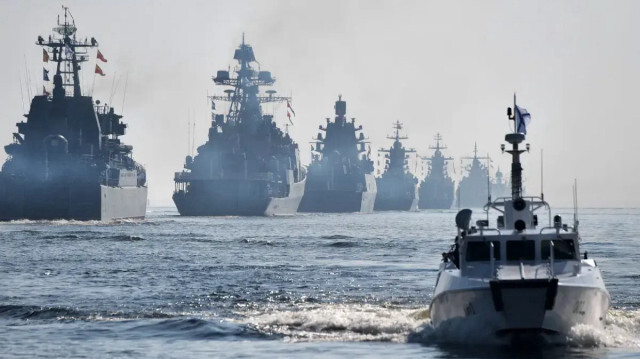
'This is a serious problem because this is not only a problem for us but also for security of entire Black Sea,' says Salome Zourabichvili
Georgian President Salome Zourabichvili claimed that Russia started work on establishing a naval base in the country's breakaway region of Abkhazia.
"Initial work is being done (by Russia) for the Ochamchire Base. This is a serious problem because it is not only a problem for us, but also for the security of the entire Black Sea region," Zourabichvili said during a press conference with the media in Tbilisi late Monday.
Criticizing Russia's decision to establish a new permanent base in the breakaway region, Zourabichvili accused Prime Minister Irakli Kobakhidze and his government of not implementing an effective policy toward Abkhazia, as well as the breakaway South Ossetia region.
Zourabichvili further said people in the two regions should be granted Georgian citizenship.
Russian authorities have not yet commented on Zourabichvili's remarks.
In 2008, a five-day conflict broke out between Georgia and Russia over the breakaway regions of South Ossetia and Abkhazia.
Georgia ultimately lost control of both areas, and Russia later recognized them as independent states, leading to Tbilisi cutting off diplomatic relations with Moscow. Both regions remain internationally recognized Georgian territories.
In October 2023, Russia and the breakaway Abkhazia region signed a deal to establish a Black Sea Fleet naval facility in the Ochamchira district.
- 'Foreign influence' law
Zourabichvili further touched on her country's ties with the US and the EU following the signing of the country's "foreign influence" bill into law back in June, saying that the decisions taken afterward were not surprising.
On July 31, the US announced that it is pausing $95 million in assistance to Georgia, in line with Washington's decision in May to conduct a comprehensive review of the bilateral cooperation between the two countries.
The US also said it "indefinitely" postponed a military exercise in Georgia and imposed visa restrictions on dozens of Georgian officials earlier in July and in May, respectively.
The decisions were taken as Georgia's Parliament Speaker Shalva Papuashvili signed a controversial “foreign influence” bill into law, which requires organizations, including media outlets, which receive more than 20% of their funding from overseas, to register with the state.
The law, which also requires such organizations to publish annual financial reports, was initially vetoed by Zourabichvili, but later overridden by the country's parliament following a vote.
Critics say the law would undermine democracy, labeling it a "Russian law," but members of the ruling majority argue it would increase transparency.
Georgia's president said she understood Washington's reaction, though defined the restriction of aid to the country as incomprehensible.
Zourabichvili also argued that the country's current government should not win in the upcoming general elections to be held in October, and that the new government should reorganize its relations with the West.
"There are many aspects of this government that can and should be punished, but the Georgian army, which our state and defense depends on, cannot be punished," she added.

